Speakers
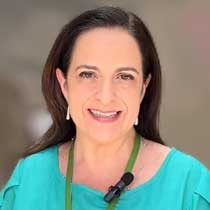
Anahi Cristina Dreser Mansilla
She is a researcher and lecturer in the Centre for Health Systems Research at the Mexican National Institute of Public Health (INSP). She leads the research group Medicines in Public Health. Her research interests include health and pharmaceutical policies, antibiotic stewardship programs, medicines utilization, and healthcare quality. Dr. Dreser is a medical doctor, holds a M.Sc. in Control of Infectious Diseases, and a Ph.D. in Public Health and Policy (LSHTM, UK). She has collaborated with key stakeholders in Mexico and with the Pan American Health Organization on initiatives aimed at improving the use of antibiotics and containing antimicrobial resistance.
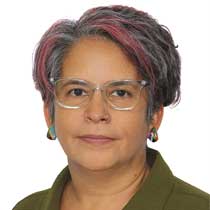
Angela Patricia Acosta Santamaria
She is an associate researcher at ICESI University (Colombia). Doctor (PhD) in Pharmaceutical Sciences and Master in Clinical and Health Effectiveness from the University of Buenos Aires. She worked in Brazil as a Specialist in medicines and health technologies at the South American Institute of Government in Health ISAGS - UNASUR. Senior consultant in health issues and university teacher in recognized universities in Colombia, Brazil and Argentina.
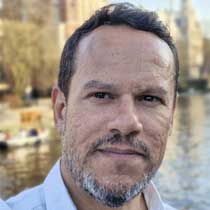
Augusto Afonso Guerra Jr
Associate Professor at the Federal University of Minas Gerais, with a PhD in Epidemiology from the School of Medicine. He coordinates the Pharmacogenomics Research Laboratory and the Collaborating Center for Technology Assessment and Excellence in Health. He is also an associate researcher at the National Center for Innovation in Artificial Intelligence for Health. He works in pharmacogenomics, pharmacoepidemiology, pharmacoeconomics, pharmaceutical and health policies, data engineering, and artificial intelligence, which are applied to using “big data” in health. He has experience in leading national and international projects to evaluate and develop innovative health technologies. His research seeks to generate evidence from clinical studies and real-world data, focusing on supporting strategic decisions in the incorporation, use and development of innovative and high-cost pharmaceutical technologies, especially in rare diseases, genetics and cancer.
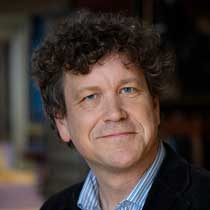
Bjorn Wettermark
He is professor of pharmacoepidemiology at Uppsala university, Sweden and visiting professor at Vilnius university, Lithuania. His research focus on drug utilization as a tool in health policy including prescribing quality indicators, international comparisons of drug utilization, evaluation of prescribing doctors´ adherence to guidelines, evidence generation for new medicines and patient adherence to treatment. He has previously had various managerial positions in the health region of Stockholm as well as other commitments including membership in national and regional strategic groups on medicine management, scientific advisor to the Swedish Medical Products Agency and chair of the European Drug Utilization Research group (EuroDURG), the European chapter of the International Society for Pharmacoepidemiology.

Claudia Osorio de Castro
She is a researcher and professor at the Oswaldo Cruz Foundation in Brazil. She holds a degree in Pharmacy from the Federal University of Rio de Janeiro, a Master's in Pharmaceutical Sciences and a Ph.D. in Child and Women's Health from the Oswaldo Cruz Foundation. She is a senior researcher at the National School of Public Health (ENSP-Fiocruz), where she coordinates various disciplines and supervises master’s, doctoral and postdoctoral students. She is an advisor for the World Health Organization, member of the Expert Committee on Essential Medicines, and has consulted for the Pan American Health Organization, and the Brazilian Ministry of Health. She is an ISPE member. Her research focuses on pharmaceutical services, drug utilization studies, medicines policies, the judicialization of access to medicines, and disasters and health emergencies.
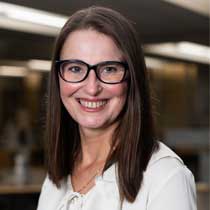
Daniela Claudia Moga
She is a professor in the Department of Pharmacy Practice and Science, an affiliated faculty member in the Institute for Pharmaceutical Outcomes and Policy (IPOP), and Larry H. Spears Endowed Chair in Pharmacogenetics in the College of Pharmacy at University of Kentucky. She currently serves as Assistant Dean for Research (Clinical and Translational Programs) in the College of Pharmacy. Dr. Moga is also jointly appointed as a professor in the Department of Epidemiology in the College of Public Health and serves as a faculty associate with the Sanders-Brown Center on Aging. Dr. Moga is a Fellow of the ISPE and currently serves as chair of the ISPE Membership Committee. She is the incoming President Elect of the Society. Her areas of interest include geriatric pharmacoepidemiology and health outcomes research, and lie at the intersection of aging, multimorbidity and brain health. Dr. Moga’s research focuses on using real-world data to evaluate health effects of potentially inappropriate medications, as well as developing and evaluating deprescribing interventions to optimize treatment regimens in older adults at risk.
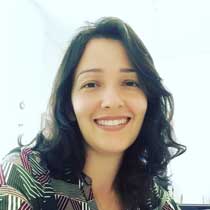
Elisangela Lima
She is a researcher and professor at the Rio de Janeiro Federal University. She holds a degree in Pharmacy from the Federal University of Rio de Janeiro, a Master's in Biological Sciences, and a Ph.D. in Public Health from the Oswaldo Cruz Foundation. She coordinates disciplines and supervises master’s and doctoral students. She is an ISPE member. Her research focuses on pharmaceutical services, drug utilization studies (special populations, antibiotics, antineoplastics), medicines policies, and pharmaceutical services.
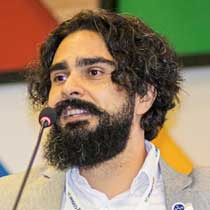
Felipe Ferré
Felipe Ferré is a pharmacist, PhD in bioinformatics, and a specialist in health informatics. He has been working in public health since 2009 as a health informatician with a focus on data science. He currently serves as a technical advisor at Conass – National Council of Health Secretaries, participating in national technical governance bodies for Digital Health. His main interests include artificial intelligence, big data, drug utilization studies, health economics, and health litigation.
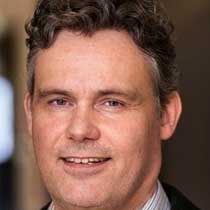
Larus S Gudmundsson
He is a professor of Pharmacoepidemiology at the University of Iceland (UI), he is a Pharmacist and a Clinical Epidemiologist with a PhD in Biomedical Sciences. His diverse experience includes working in various pharmacy-related fields such as research and development, registration, and production of pharmaceuticals, as well as at the Laboratory of Pharmacology and Toxicology at UI. He has also monitored nationwide drug use and prescribing at the Directorate of Health, using the Icelandic Prescription Data base (IMR). His research encompasses epidemiology of headache, migraine and comorbid conditions, effects of long-term use of hypnotics, sedatives and opioids
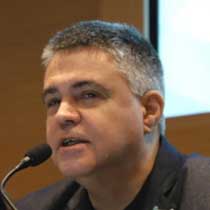
Leonardo Castro
He is a researcher and professor at the National School of Public Health/ Oswaldo Cruz Foundation in Brazil. She holds a degree in Psychology from the State University of Rio de Janeiro, master's in Social Psychology from the same University, and a Ph.D. in Anthropology from the National Museum/ Federal University of Rio de Janeiro. Also at the Oswaldo Cruz Foundation, he coordinates the foresight initiative "Health Tomorrow, within the Fiocruz Strategy for the 2030 Agenda. Among his research interests is the study of digital technologies and their implications for health systems.
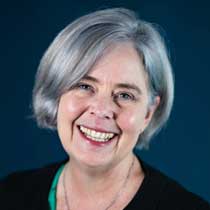
Lisa Pont
She is Professor of Pharmacy and Deputy Head of School in the Graduate School of Health at the University of Technology Sydney. Professor Pont leads the Medicines Utilization Research Team at the University of Technology Sydney, and her work centers around the epidemiology and utilization of medicines among older populations, primarily in aged care settings, and the use of real-world data to explore and understand medication-related problems.

Luciane Cruz Lopes
She is a full professor in the Graduate Program in Pharmaceutical Sciences at the University of Sorocaba, São Paulo, Brazil. She holds a degree in Pharmacy and Biochemistry and a PhD in Clinical Pharmacology. Dr. Lopes has served as a consultant for the World Health Organization and the Pan American Health Organization, contributing to initiatives such as Brazil's National List of Essential Medicines. As the leader of the SERIEMA-EVIPNet-Brazil Evidence Center and chair of the Latin American group of the International Society for Pharmacoepidemiology (ISPE). Her work spans diverse sectors, including health, social protection, and international development, with a strong emphasis on the intersection of evidence synthesis and policymaking. Fluent in Portuguese, Spanish, and English, Dr. Lopes has authored over 240 peer-reviewed publications
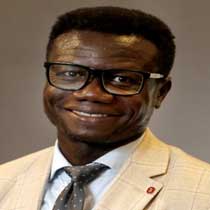
Macarius Donneyong
He is an Associate Professor at The Ohio State University. With joint appointments in both the College of Pharmacy and the College of Public Health, Dr. Donneyong’s work extends across multiple disciplines, making significant strides in pharmacoepidemiology. His research focuses on understanding the safety and effectiveness of medications, particularly among underrepresented patient groups. Recognized for his scholarly contributions, He has been the recipient of several prestigious research grants and is a respected figure in the academic community. His insights have been sought after at various national and international avenues, including serving on as a Panel Member of an NIH study section, providing subject matter expertise to policymakers and regulators such as the FDA, etc. In addition to his research, Dr. Donneyong is committed to education and mentorship, having developed a pioneering course in healthcare data analytics at OSU and mentoring a new generation of researchers in pharmacoepidemiology.
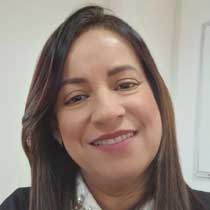
Marcia Goncalves de Oliveira
She is a pharmacist and specialist in public health from the Federal University of Goiás. She is a specialist in Health Regulation and Surveillance from the Oswaldo Cruz Foundation. She holds a master's degree in Public Health from the Federal University of Bahia and in Public Administration from the Getúlio Vargas Foundation. She has worked at the National Health Surveillance Agency since 2005, working on drugs subject to special control, drug leaflets and labeling, pharmacovigilance, good regulatory practices, and post-market monitoring. She is currently the manager of the Health Services area, responsible for topics such as control and regulation, risk management, patient safety, prevention and control of Healthcare-Associated Infections and antimicrobial resistance.
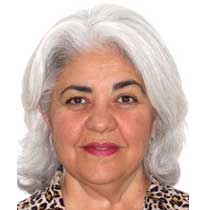
Maria Caterina Milone
She is a researcher and professor at the National University of Patagonia San Juan Bosco in Argentine. She holds a degree in medicine and Pediatrician with a Master's degree in Pharmacoepidemiology from the Autonomous University of Barcelona. She is Adjunct professor in the Departments of Health Research and Bioethics, General Pharmacology, and Drug Advertising Analysis in the Medicine Program. She is member Argentine Group for the Rational Use of Medicines. The Argentine Public Network for Health Technology Assessment (RedARETS) and member of the Drug Commission of the Medical Confederation of the Argentine Republic for the update of the National Therapeutic Formulary. Her focuses on training and raising awareness among people in pharmacoepidemiology, health research, bioethics, human health, and planetary health. Development of competencies to promote sustainable, ethical, fair, equitable, and honest professional development in a transdisciplinary manner to strengthen alliances in pursuit of sustainable development goals.
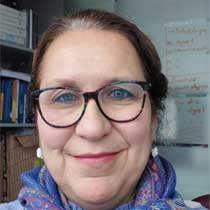
Maria Pilar Sanchez Olavarria
She holds a degree in Chemistry and Pharmacy from the University of Chile, a Master's in Biostatistics from University of Chile and a Ph.D. in Statistics, data analysis and Biostatistics from the University of Barcelona. She is a professor and researcher at the Faculty of Chemistry and Biology in the University of Santiago, where she coordinates various courses in pregrade and postgrade (University of Santiago, USACH, University of Chile and University of the Americas (UDLA). She is a member of One Health Latinoamerica, Iberoamerica , and the Caribe (OHLAIC) and the Academy of Pharmaceutical Sciences of Chile. She is an ISPE member. Her research focuses on pharmaceutical pollution (eco-pharmacovigilance), its impacts in the loss of biodiversity and bioequivalence of medicaments.
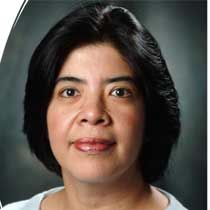
Maribel Salas
She s is an Executive Director at Bayer Pharmaceuticals and Adj Scholar at UPenn and Rutgers University. She holds a MD degree with Specialty in Internal Medicine. She holds a MSc and DSc in Pharmacoepidemiology, Clinical Epidemiology and Biostatistics. She has been working in Patient Safety for more than 20 years initially at the University of Birmingham Alabama where she was Professor at the School of Public Health and Preventive Medicine, and then at the pharmaceutical industry. She has more than 100 publications and more than 1,000 citations. She has received multiple awards and research grants. She is a Fellow of the ISPE and ISoP and Chair of the ISPE Global Development Committee.
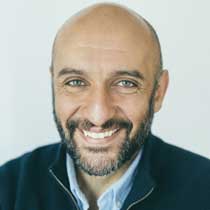
Mina Tadrous
He is an Assistant Professor at the Leslie Dan Faculty of Pharmacy, University of Toronto, and Tier 2 Canada Research Chair in Pharmaceutical Policy and Real-world Evidence. He co-directs Pharmaceutical Policy and Pharmacy Practice at the Ontario Drug Policy Research Network (ODPRN) and is an ICES adjunct scientist and ISPE Fellow (FISPE). With a PhD in Pharmacoepidemiology (University of Toronto) and a Master’s in Health Outcomes (University of Tennessee), he also trained in pharmacy and drug policy research. His work focuses on drug policy evaluation and post-marketing surveillance, leveraging large datasets to inform real-world medication safety and effectiveness Consumption (ESAC-Net) and WHO GLASS.
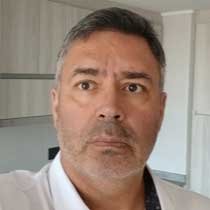
Oscar Lopez
Veterinarian, Master in Education, Master in Veterinary Sciences and PhD in Conservation and Biodiversity Management. Researcher in antibiotic resistance genes in freshwater environments and vertebrate carriers. Professor of Animal Pathology with One Health approach. Education consultant. Director of the NGO Triangulum Australe. President of the Organizing Commission of the VI Latin American Congress of Mastozoology Chile-2024. Member of the editorial team of the Bulletin of the National Museum of Natural History and Director of the School of Veterinary Medicine of Santiago Campus from Santo Tomás University.
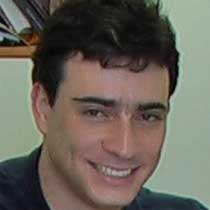
Raphael Augusto Teixeira de Aguiar
He graduated in medicine, master's degree in Public Health and a doctorate in education in Federal University of Minas Gerais (UFMG). He is a specialist in Data Science and Big Data from PUCMINAS. He worked as a consultant for the Ministry of Health and as coordinator of educational management at the Open University of Unified Health System (UNA-SUS), in Brasília. He is currently an adjunct professor in the Department of Preventive and Social Medicine at the UFMG School of Medicine and vice-director of the Center for Education in Public Health at UFMG.
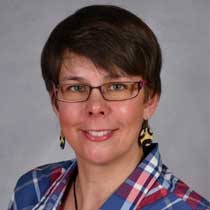
Ria Benko
She is qualified as a clinical pharmacist and ID pharmacist at the University of Szeged, Hungary. She received her PhD in clinical pharmacology and drug utilisation research. She is a senior lecturer at the Institute of Clinical Pharmacy, at her Alma Mater. She worked as a part-time ward pharmacist at different units and currently she is the chief pharmacist of the University Pharmacy Service. Her main research focus is drug utilisation research, primarily on antibiotics. She is member and chair elect of the European Drug Utilisation Research Group. She is one of the national focal contact points for Hungary in the European Surveillance for Antimicrobial Consumption (ESAC-net) and WHO GLASS.
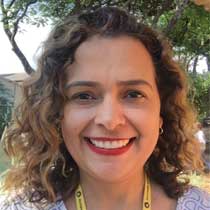
Tais Galvao
Taís Freire Galvão is an Associate Professor at the School of Pharmaceutical Sciences of Universidade Estadual de Campinas. She is currently the coordinator of the General Coordination of Technical-Scientific Editing in Health Surveillance, Department of Strategic Actions of Epidemiology and Surveillance in Health and Environment, Secretariat of Surveillance in Health and Environment, Brazilian Ministry of Health. She has a degree in Pharmacy from the Federal University of Amazonas, a master's degree in Evidence-Based Health Effectiveness from the Federal University of São Paulo and a PhD in Health Sciences from the University of Brasília, with a sandwich internship in the Department of Epidemiology at Columbia University, New York, USA. She has experience in the areas of epidemiology and systematic literature reviews, working mainly in health technology assessment, investigations of disease prevalence and risk factors, and scientific communication.
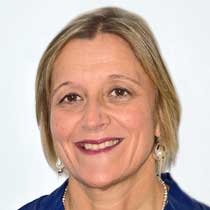
Ursula Kirchmayer
Trained as a pharmacist and holding a Master's degree in Public Health, Ursula has dedicated the last 28 years to the Italian public healthcare service as an epidemiologist, with 18 years of experience in pharmacoepidemiology. She represents her department at ENCePP and currently serves as the president-elect of ISPE.
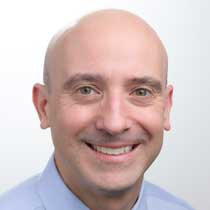
Vincent Lo Re
He is a tenured Associate Professor of Medicine and Epidemiology at the University of Pennsylvania and Senior Scholar at the Penn Center for Clinical Epidemiology and Biostatistics. He leads an NIH-funded research program on the pharmacoepidemiology of liver diseases, focusing on antiviral and antiretroviral therapies. He also maintains a clinical practice in chronic viral hepatitis. Dr. Lo Re is Co-Director of Penn’s MS in Clinical Epidemiology program and MPI of its Pharmacoepidemiology T32 training program. A long-time ISPE member, he has served as Board Member (2015-2018), Scientific Program Chair (2019), President (2021-2022), and Regional Editor for the Americas of Pharmacoepidemiology and Drug Safety since 2018.